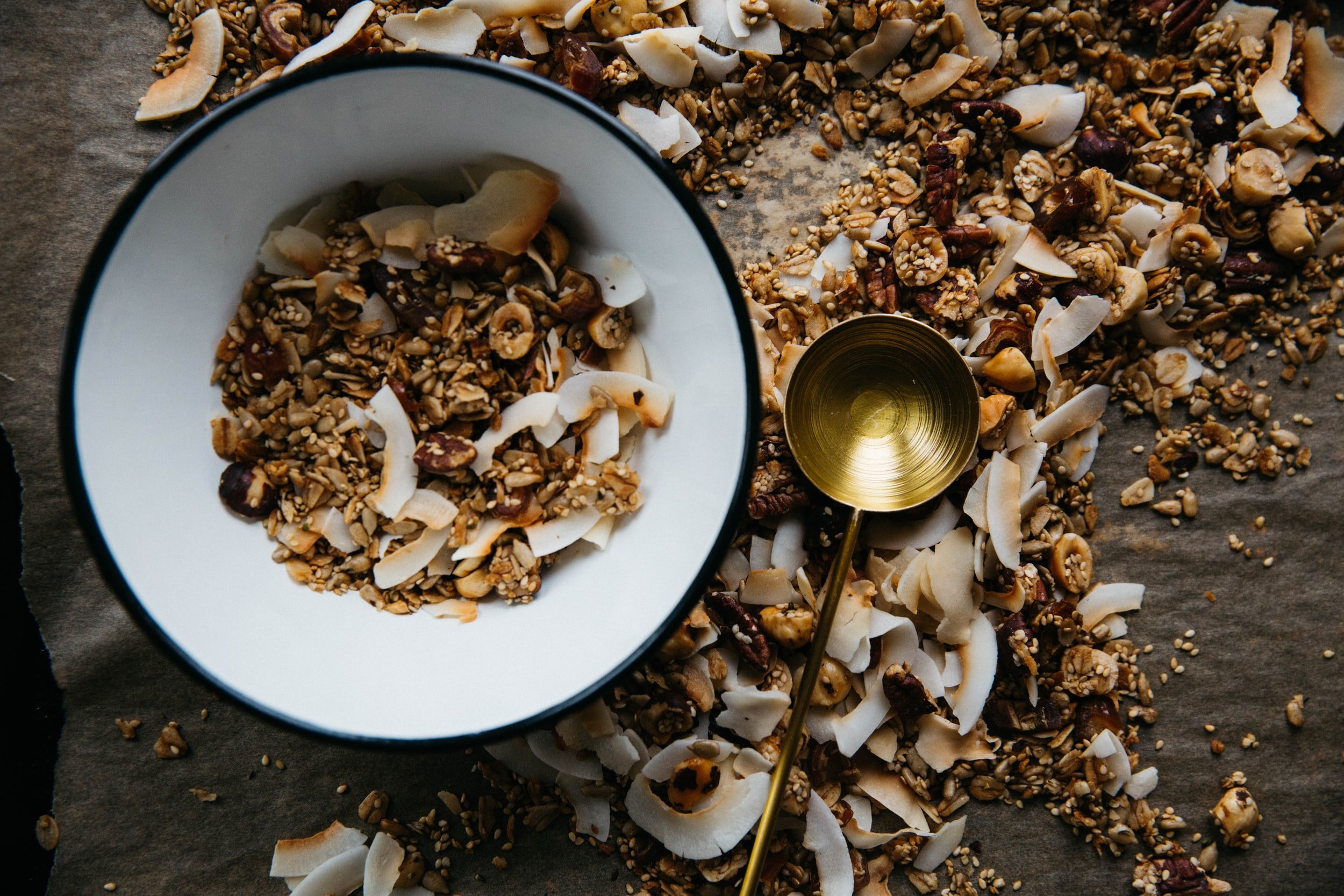Whole Grains: Do We Need Them?
Let’s talk grains. Essential for good health? Out to kill us all? Somewhere in between?
Let’s talk about you, and whether these foods are right for YOUR body.
I love talking about the controversial stuff. Get me going and I can talk your ear off on my views on butter, quinoa and GMOs. So today I’m giving you an earful on grains and carbs, and how they may impact our reproductive health.
Whole Grains - what’s their deal?
Here in the US the officially dietary guidelines always stress the importance of whole grains in the diet. It wasn’t too long ago that grains in general (whole or refined) formed the base of the Food Guide Pyramid, encouraging us to consume most of our calories from these types of starches. While I’m not going to go into the public health implications of that guidance, let’s just say there are a lot of brilliant minds who consider that particular recommendation to be the main cause of the booming obesity and diabetes epidemic.
Nutrient density
I like to think of foods in terms of their nutrient density when deciding if it’s something to have a lot of, or avoid altogether.
Compared to refined grains, whole grains look great! In addition to the starchy carbs necessary for energy, there is fiber, protein, some B vitamins and minerals like magnesium and potassium in whole grains. But grains really don’t have a very significant amount of any of these, and there are sources of each of these nutrients that are much higher.
In my opinion, the main benefit of whole grains is that they digest a bit slower than refined grains so can keep us full for longer. And generally to most people they don’t taste as good, so it’s a little harder to overeat.
But that’s as compared to “white” grains.
When you start comparing grains to other starches such as sweet potato and other root vegetables, beans, winter squash and even a white potato with skin on - whole grains start to lose their sparkle. These examples are all lower on the glycemic index and generally richer in most vitamins and minerals.
So, does that mean no grains for you?
Not necessarily. It’s not exactly that whole grains are a bad food, they’re just not anything special. Every nutrient they contain is available in other foods, and most of these foods will have more vitamins and minerals to brag about in comparison. And waaaaaaaay more antioxidants and plant based phytochemicals. When I’m designing a diet plan for a new client, grains don’t fall super high on my list of priority foods that will balance hormones, promote fertility, reduce inflammation etc. With that said, there are certain situations where I advise avoiding grains, at least for a little while:
Women with PCOS and gestational diabetes tend to do better with glucose control when their carb sources are coming from non-grain sources.
Since grains can be a source of digestive upset and inflammation, those with any kind of inflammatory condition, GI symptoms and even unexplained infertility can do a trial without grains to see how they feel.
Anyone who feels that they may have problems with overeating on carbohydrates or has a wicked sweet tooth.
But be aware that grain free doesn’t mean carb free.
Even for my patients who need to lose weight or have high blood sugar like in the case of PCOS, I don’t recommend a low carb diet. Restricting carbs too much can actually have a negative impact on hormone production and balance, as well as send your body into a “starvation” mode. This isn’t great for those who are working to balance hormones and cycles, trying to conceive, pregnant or nursing.
What are my favorite carbohydrate sources? I’m so glad you asked!
Yams & Sweet Potatoes
Carrots & Beets
Butternut & other winter squash
Rutabaga, Parsnips & Turnips
White Potato (with skin on)
Beans & Lentils
Getting most of your carbohydrates from these amazing starch sources and adding in some fruit and occasional grains will go a long way in increasing the nutrient density of your meals and balancing your blood sugar, and in turn your hormones.
Here’s a killer recipe for some Roasted Roots & Rosemary
Want to be first in line for nutrition & women's health news, research, recipes and special promotions? Sign up for my newsletter now!


